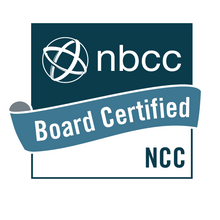
Mental Health Recovery
by Dr. Moses L. James III, LPC, NCC, ACS, DCC

Mental Health Recovery and Goals
Regarding mental health recovery, it is important to first have goals because they give you reasons to work at feeling and progressing toward getting better. More specifically, it is important to write down your goals in terms of what you desire as opposed to what you believe is possible.
In other words, write down your B.H.A.G. (Big Hairy Audacious Goal)
As an example, I assisted a young man in developing his goals as they reported having no goals for therapy as they were only in therapy due to a court order.
I suggested that one of his goals might be to follow the court order in order to go to court less or not at all over time. The client responded positively to my suggestion and asked, "Well how am I going to do that?"
I told him that he was already "doing" what was necessary in accomplishing that and I added, "When you no longer have these court issues, what do you want to do more of?"
The client replied, "Get back into playing music." I then asked the client, "Well what do you believe are the necessary ingredients in getting back into playing music and going to court less or not at all over time?"
The client said, "I see where your going with this, in order for me to get from point A to point B, one of the necessary ingredients for me would be to continue with therapy. "
I replied, "Exactly."
As an IIH psychotherapist, I am very much interested in the reasons for seeking psychotherapy for their child. I make sure to point out the following assumptions regarding goals in relation to children and psychotherapy:
- Most children receiving IIH clinical services do not request these services on their own.
- Children receiving IIH clinical services are usually referred because they have been a problem for others (ex., physical or verbal aggression that places the child or parent at risk).
- Children do not have much control over a psychotherapist coming to their home in providing psychotherapeutic services.
- Children are action oriented and tend to learn by doing.
- Family, school, and peer groups can reinforce or extinguish adaptive coping skills. Family involvement and school consultation is critical.
- Sitting face-to face t discuss psychological problems can be unsettling.
- Rewards are important.
Mental Health Recovery and Psychotherapy
Another important consideration in therapy is working with a competent therapist. In my research, I explored the perceptions of in home counseling experiences, cultural counseling competence, and the viewpoints of the home-based counseling experience. The themes include:
- awareness of cultural differences
- comfort in the session
- time to understand the family needs
- counseling strategies
Overall, participants expressed that a necessary ingredient in a therapist include:
- establishing and maintaining a healthy client- therapist relationship
- active listening
- unconditional positive regard
- warm acceptance
- empathy in building a connection
For them, a therapist encompassing the aforesaid assists in developing rational goals when based on the facts.
Mission Statement
We dedicate ourselves to the visualization of autonomy, justice, beneficence, and fidelity in providing meaningful help to culturally diverse populations receiving clinical services.
It is our goal to engage and educate the individual in providing meaningful help in both feeling and getting better to culturally diverse populations.
Mental Health Center from WebMD
Mental health disorders affect an estimated 22% of American adults each year. Here you'll find in-depth mental health information including care, and various mental health conditions.


